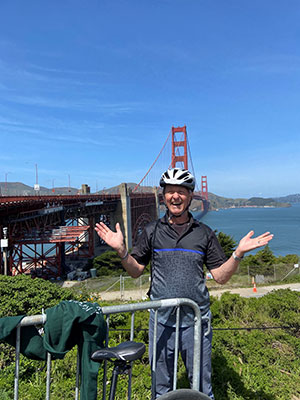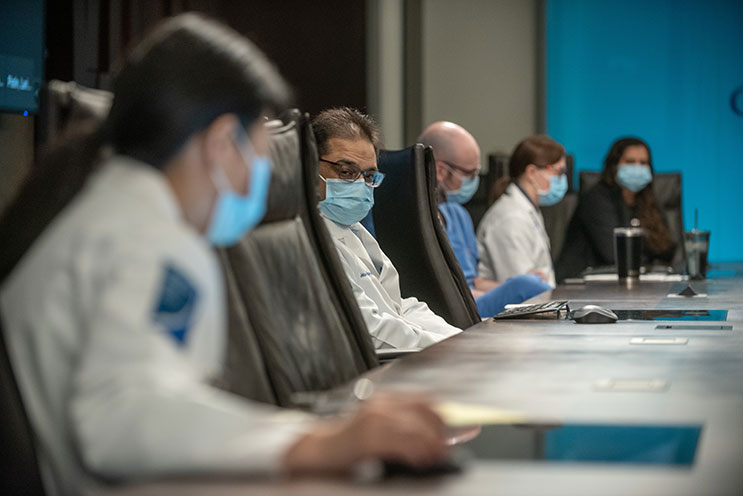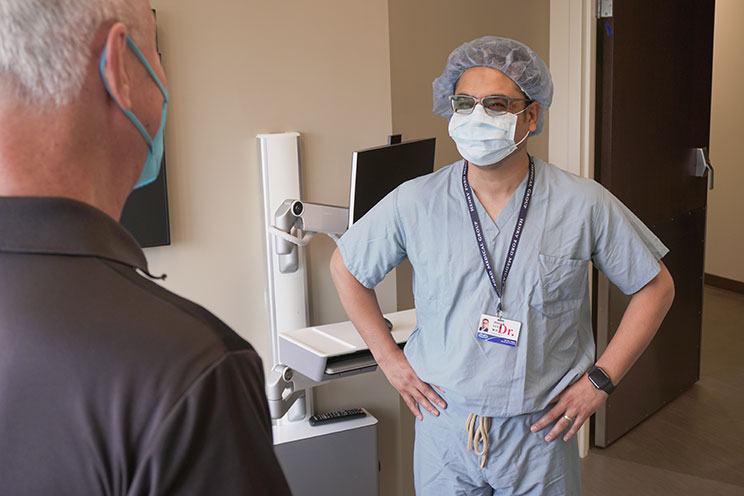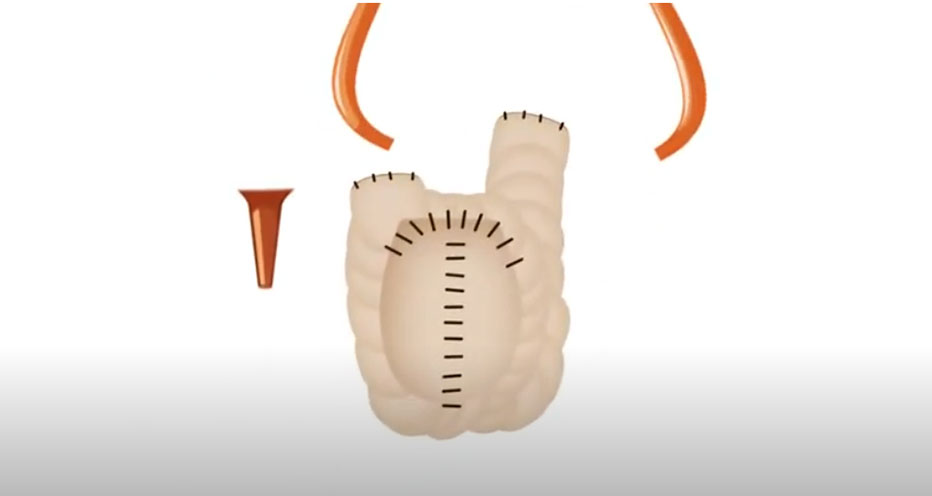Happy Camper after Bladder Reconstruction
Peter Haller and his wife, Diane, are an active couple who have always enjoyed biking, camping, kayaking and the great outdoors. The Hallers recently biked across San Francisco’s Golden Gate Bridge — an accomplishment made even more amazing by the fact that Peter was recovering from bladder reconstruction surgery.
 Peter’s cancer journey began in December 2020 with what he thought was a urinary tract infection. Experiencing discomfort while urinating, Peter went to his doctor for tests that showed reason for concern. He was referred to a urologist, who performed a diagnostic test called a TURBT (short for transurethral resection of a bladder tumor). When TURBT detects cancer in its earliest stages, the tumor can often be removed at the same time.
Peter’s cancer journey began in December 2020 with what he thought was a urinary tract infection. Experiencing discomfort while urinating, Peter went to his doctor for tests that showed reason for concern. He was referred to a urologist, who performed a diagnostic test called a TURBT (short for transurethral resection of a bladder tumor). When TURBT detects cancer in its earliest stages, the tumor can often be removed at the same time.
Peter’s oncologist followed up immediately with a procedure called intravesical therapy, which aims to destroy any cancer cells left in the bladder after TURBT. Unfortunately, Peter’s cancer had advanced to stage three and invaded the muscle wall. He would need more invasive treatment.
At that time, Henry Ford Health was conducting a clinical trial for a cancer drug called Keytruda®, which aims to help the body’s immune system better identify and fight cancer cells. Peter’s oncologist highly recommended that he participate in the trial, which is how Peter met Johar Raza, M.D., a Henry Ford Health surgeon who specializes in urologic cancers.

Dr. Syed explained to Peter and his family that removal of the bladder (an operation called a cystectomy) was necessary, and he offered two options. One was to make an opening on the belly called a stoma, through which urine would pass. Since urination could no longer be controlled, a bag to collect the urine would be necessary. The other option was to reconstruct a new bladder using part of the small intestine.
 Peter chose to have bladder removal with reconstruction. In preparation for surgery, Peter had three months of chemotherapy, overseen by Sheela Tejwani, M.D. He then took one month to let his body rest and recover.
Peter chose to have bladder removal with reconstruction. In preparation for surgery, Peter had three months of chemotherapy, overseen by Sheela Tejwani, M.D. He then took one month to let his body rest and recover.
After a successful surgery in May of 2020, Peter spent four days at Henry Ford Hospital and experienced no complications. He credits his quick recovery, ”not only to the wonderful care I received, but also to staying active and fit throughout my life,” he said. “One of the best things I did afterward was to enroll in physical therapy to strengthen my pelvic muscles and train my new bladder to work like the old one.” Peter and Diane have a new granddaughter, “and the family joke was to see which of us was potty trained first,” Peter laughed. “I think I won.”
Meet the Bladder Cancer Team

 Peter received a wonderful gift on August 19, 2021, his 73rd birthday. The FDA expanded their approval of the drug Opdivo® for treating a wider range of patients with bladder cancer. Opdivo uses T-cells in the immune system to identify and attack cancer cells. This is fortunate for Peter, since his type of bladder cancer has a high risk for coming back. Infusion sessions can be as long as four to six hours, but Peter has had no adverse reactions. He has a follow-up CT scan every three months, and Peter’s oncologist said the most recent one looked “perfect.”
Peter received a wonderful gift on August 19, 2021, his 73rd birthday. The FDA expanded their approval of the drug Opdivo® for treating a wider range of patients with bladder cancer. Opdivo uses T-cells in the immune system to identify and attack cancer cells. This is fortunate for Peter, since his type of bladder cancer has a high risk for coming back. Infusion sessions can be as long as four to six hours, but Peter has had no adverse reactions. He has a follow-up CT scan every three months, and Peter’s oncologist said the most recent one looked “perfect.”
One year post surgery, Peter said, “I am doing almost everything I was able to do before. We have a 120-year-old family cabin on Neebish Island, in Michigan’s Upper Peninsula. As you can imagine, it needs continual work, and I have been able to keep up my share, climbing ladders and moving rocks.” In addition, he and Diane drove the 5,000 miles back from their California trip, camping for 40 days along the way.
For other individuals facing cancer surgery, Peter recommends, “doing some of your own research, using reliable sources; finding a good medical team, and trusting their expertise. Pay attention to what you eat and keep doing, or start doing, activities that will keep you healthy.”
*Peter has since passed away but requested his story remain to showcase the life he was given thanks to treatment*
.svg?iar=0&hash=F6049510E33E4E6D8196C26CCC0A64A4)

/hfh-logo-main--white.svg?iar=0&hash=ED491CBFADFB7670FAE94559C98D7798)
